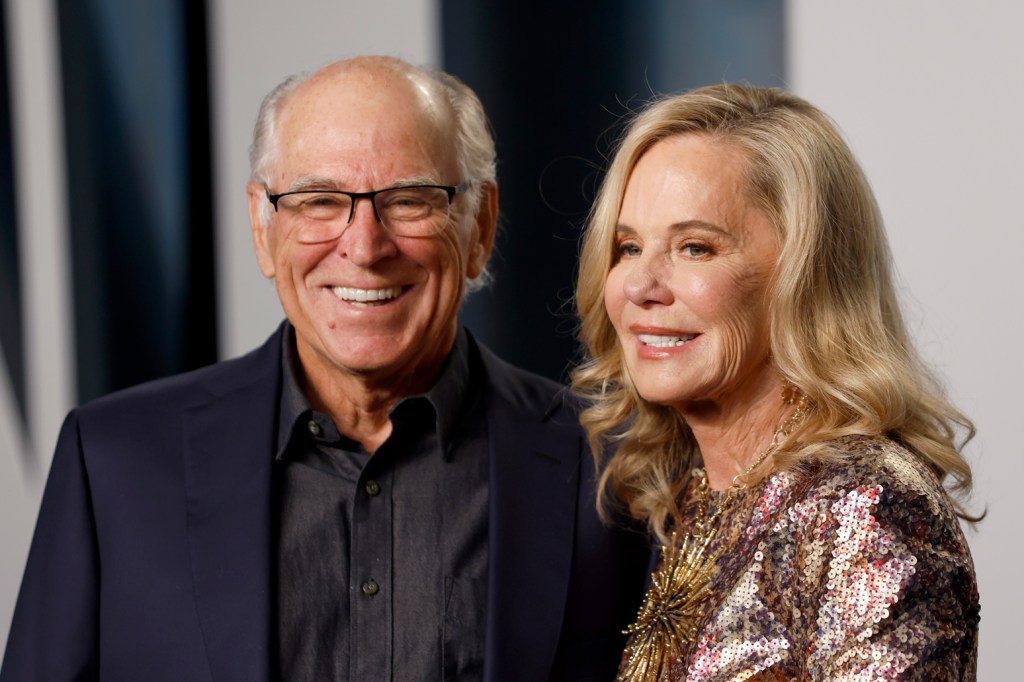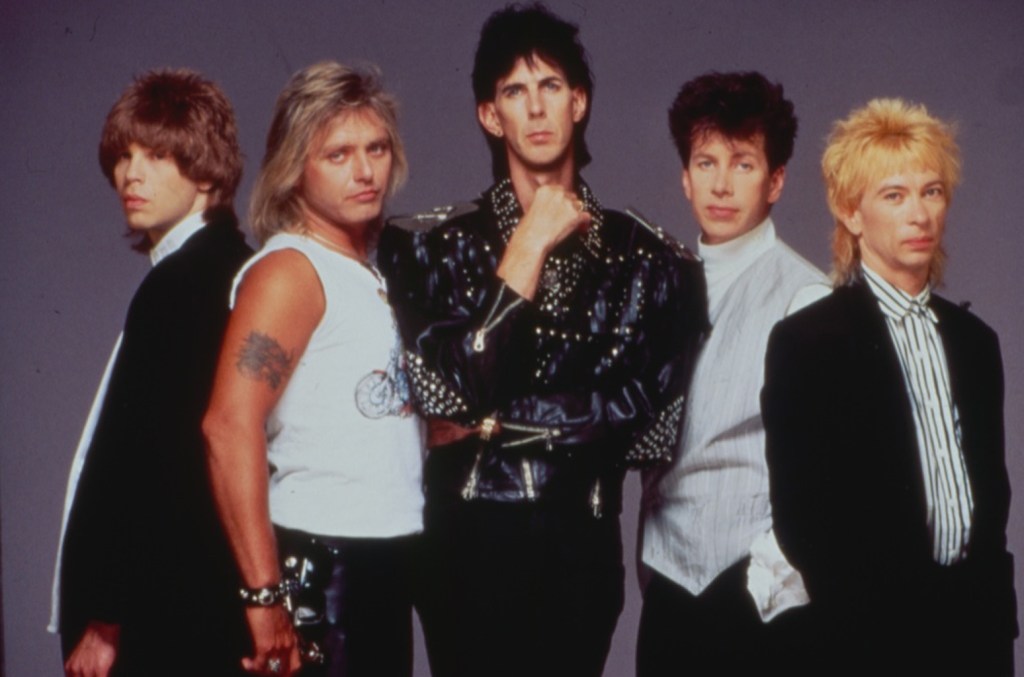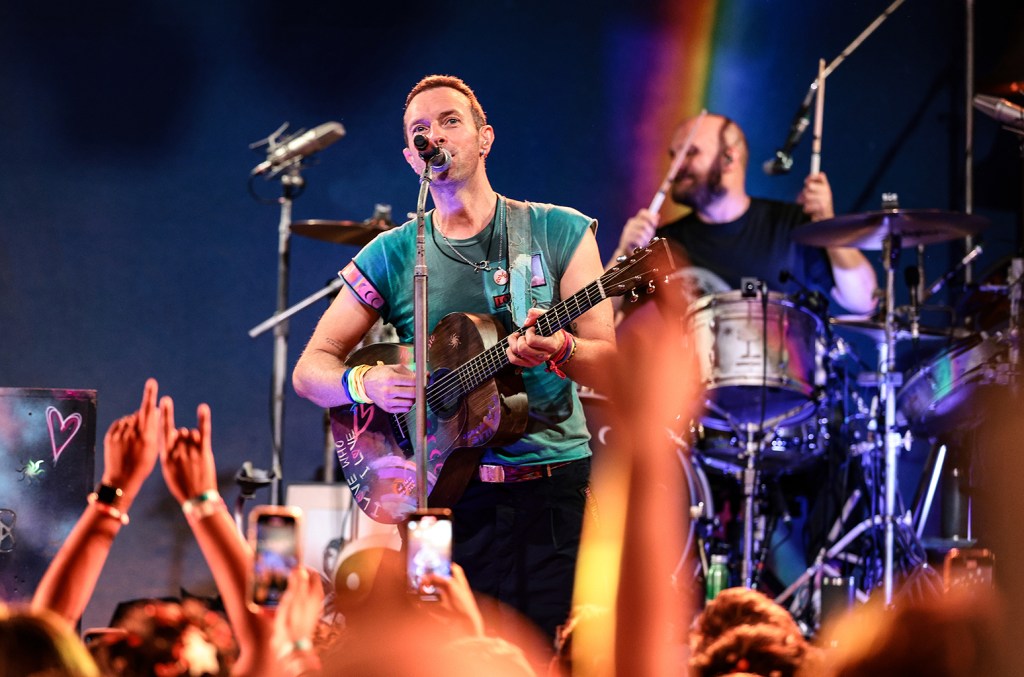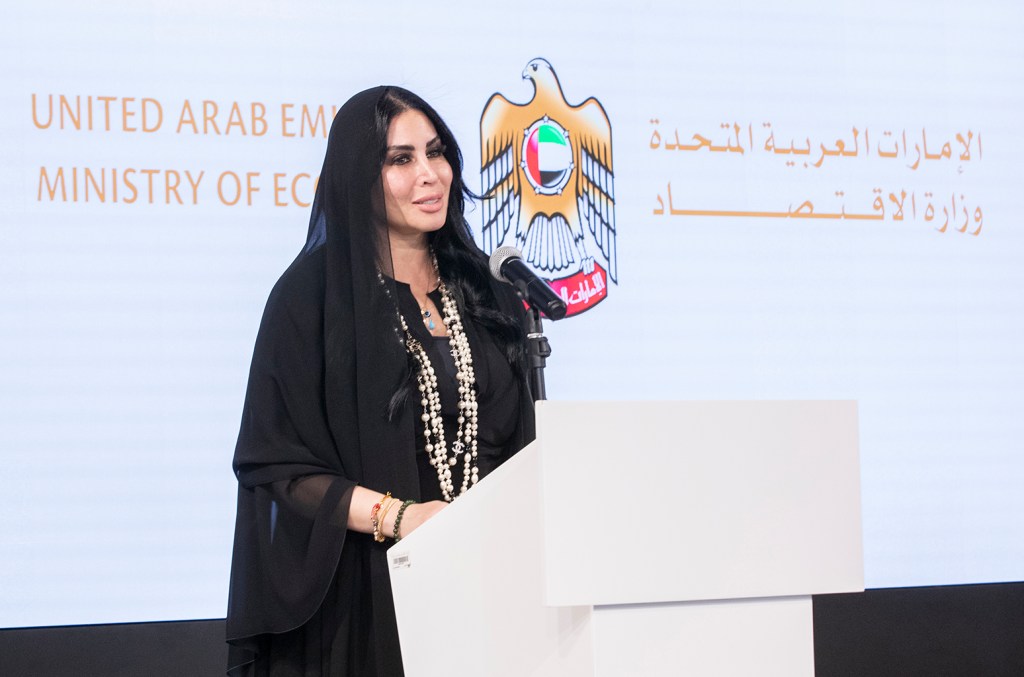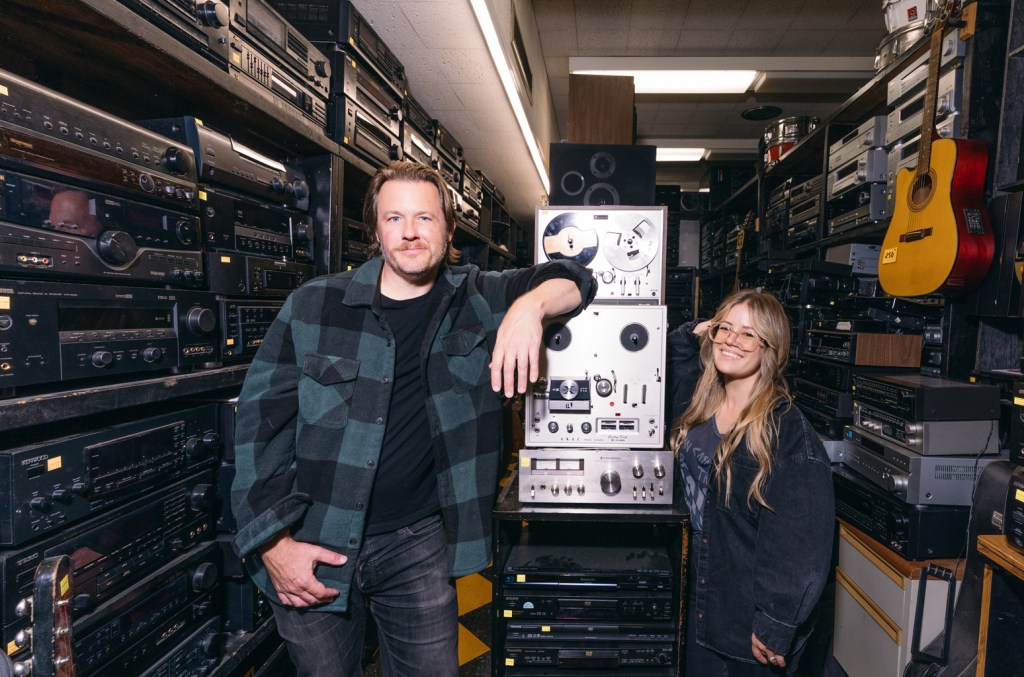Business
Page: 47
Jimmy Buffett’s widow has filed a court petition asking to replace her co-trustee on the late singer-songwriter’s $275 million estate, saying a business manager tapped to handle the assets has been “openly hostile and adversarial” while ignoring her requests for financial transparency.
The petition was filed Tuesday (June 3) by the late singer’s wife of 46 years, Jane Buffett, who married Jimmy Buffett in 1977 and was made sole beneficiary of a marital trust holding the bulk of the hitmaker’s assets upon his death in September 2023 at the age of 76. The court filing says these assets, including real estate and a 20% stake in his successful island-themed hospitality company Margaritaville, are worth roughly $275 million.
Jimmy’s will named Rick Mozenter, an accountant at the business management firm Gelfand Rennert & Feldman, as co-trustee to help Jane administer the estate. But Tuesday’s petition says that rather than help Jane, Mozenter has actually made life more difficult following her husband’s death.
Trending on Billboard
“Mr. Mozenter has failed to perform even the most basic tasks required of him in his role as co-trustee, including providing Mrs. Buffett with information concerning trust assets and finances, which has left Mrs. Buffett in the dark with regard to the state of her own finances,” write Jane’s lawyers from the firm Sullivan & Cromwell. “Along the way, Mr. Mozenter has belittled, disrespected and condescended to Mrs. Buffett in response to her reasonable requests for information she undoubtedly was entitled to receive.”
According to the court filing, Jane met with Mozenter a month after Jimmy’s death in October 2023 and asked how much income she should expect to receive annually from the trust. Mozenter dragged his feet for 16 months, Jane’s lawyers say, repeatedly ignoring her requests to get an answer as she tried to make plans for her future.
Mozenter finally provided this estimate in February 2025, and the results were “shocking.” Mozenter told Jane she would see less than $2 million in annual income — an amount that would not cover Jane’s expenses and “a remarkably poor return for a trust with an estimated $275 million in assets,” the petition states.
Jane’s lawyers say this estimate was especially surprising because the trust had received more than $14 million in distributions from Margaritaville over the previous 18 months. This made Jane concerned that Mozenter was mismanaging the trust and she requested additional financial information from him, but the accountant once again stonewalled.
The court filing also claims Mozenter has been “unprofessional and combative” to Jane and that he refused her request to sell a piece of Bahamas real estate, even though the Buffett family rarely uses this property and its costs more than $300,000 a year to operate. Mozenter has billed more than $1.7 million in fees while engaging in this alleged wrongdoing, Jane’s attorneys claim.
“Faced with what clearly has become an unsolvable rift with Mr. Mozenter, and the prospect of having to continue to unsuccessfully request that he discharge his duties, on May 30, 2025, Mrs. Buffett asked that Mr. Mozenter resign as co-trustee,” says the petition. “Mr. Mozenter refused, insisting that he remain in a position of authority over her wealth. The situation is untenable and Mrs. Buffett requests this court’s assistance to resolve it.”
Jane’s lawyers are asking a judge to remove Mozenter from the trust and replace him with a new co-trustee. The petition suggests Daniel Neidich, the CEO of investment firm Dune Real Estate Partners, for the job.
Mozenter did not immediately respond to a request for comment on the petition.
Primary Wave has partnered with The Cars to acquire the rockers’ artist royalties, the company announced today (June 4). The deal, which encompasses classic rock staples such as “Just What I Needed,” “My Best Friend’s Girl” and the Billboard Hot 100 top five hits “Shake It Up” (No. 4) and “Drive” (No. 3), follows Primary […]
Big Machine Label Group is set to celebrate its 20-year anniversary with a Big Machine 20 concert in downtown Nashville on Aug. 29, featuring performances from Sheryl Crow, Riley Green and Brett Young.
Explore
See latest videos, charts and news
See latest videos, charts and news
The free-to-the-public celebration’s will kick off the rebranded Borchetta Bourbon Music City Grand Prix NTT INDYCAR Series Championship weekend, and will include the fifth annual Freedom Friday event to honor military members, police, fire, first responders and frontline members. In 2024, the Freedom Friday event drew 118,000 attendees to Nashville prior to the NTT INDYCAR Series event.
“This year’s event has even more meaning as we celebrate 20 years of Big Machine,” said BMLG founder, chairman and CEO Scott Borchetta in a statement. “Nobody could’ve predicted our incredible success in a city we love so much. This is our thank you to Nashville and all the fans of our amazing artists and their music. This is going to be a once-in-a-lifetime event and one we’ll never forget!”
Trending on Billboard
Other performers on the lineup include newcomer Preston Cooper, as well as artists who have been part of Big Machine Label Group’s two-decade history, including The Band Perry, Danielle Peck, Danielle Bradbery, RaeLynn, Jimmy Wayne and Jack Ingram.
Borchetta launched Big Machine in 2005, following roles at labels including MCA Nashville and DreamWorks Universal. The label’s current roster includes Tim McGraw, Midland, Thomas Rhett, Rascal Flatts, Brantley Gilbert, Carly Pearce, RaeLynn, Jackson Dean and Lady A.
Along the way, the label has also been an advocate for artists’ rights, with Borchetta launching the “Music Has Value” campaign and working with terrestrial radio broadcasters to earn sound-recording performance royalties for the label and its artists.
The label’s biggest alum, Taylor Swift, is not named among the Big Machine 20 event’s participants. Swift has not been aligned with the label since leaving for UMG’s Republic label in 2018 and following the 2019 sale of Big Machine Label Group — including the pop superstar’s recorded catalog — to Scooter Braun’s Ithaca Holdings. In 2021, HYBE bought Ithaca Holdings. Swift recently regained ownership of her master recordings.
PRS For Music paid out £1.02 billion ($1.3 billion) in royalties to songwriters, composers and publishers in 2024, according to reports from the U.K. collection society.
That figure is up 8.1% from 2023, when royalty payouts to its members reached £943.6 million ($1.2 billion). This means that PRS For Music have delivered early on their five-year plan to achieve £1 billion in royalties paid out by 2026.
Last year, reported revenue growth was up 6.1% to £1.15 billion ($1.46 billion), marking a notable deceleration from the 12.5% increase recorded in 2023, when PRS For Music broke the billion-pound barrier for the first time.
Trending on Billboard
Elsewhere, international revenues at the end of 2024 jumped 79.6% from 2015 levels to £351.4 million ($448.8 million). The organization attributed the continued growth to “a renewed commercial mindset and investment in data and technology infrastructure.”
The society’s online royalties grew 9% in 2024 to £401.2 million ($512 million). Collections from the video games sector accounted for a significant portion of this increase, after PRS For Music secured a partnership with Sony Playstation’s streaming service to build on its long-standing download deal.
Public performance royalty collections were also a key driver of growth, increasing by 14% in 2024 primarily due to a lift in collections from the live sector, which were up 30% year-on-year.
In a statement, PRS For Music’s CEO Andrea Czapary Martin — who features in the inaugural Billboard U.K. Power Players list — said, “PRS members have the right to demand their society think differently, challenge the norms in an industry where tradition is too often an excuse for inaction. To constantly evolve to meet their changing needs and expectations.
“Indeed, it is because we recognize the need to constantly challenge ourselves that we have been able to double the royalties paid to songwriters, composers and publishers in less than a decade.”
The above figures were announced at PRS For Music’s annual general meeting, which took place in London on Tuesday (June 3) and was also where new council representatives were elected. Singer-songwriter Cathy Dennis has joined the Writer Council as a member alongside Tom Gray, chair of the Ivors Academy, and composer Philip Pope.
PRS for Music’s Publisher Council increased its membership, welcoming including Megan Hall, senior vp of business and legal affairs at Concord Music Publishing; Nigel Gilroy, global head of legal & business affairs at Novello and Company; Daniel Lang, senior vp of global society relations & digital rights at Warner Chappell Music; and Richard Paine, director of commercial rights & business affairs at Faber Music.
Julian Nott, chair of the PRS Members’ Council, said, “I’m delighted to welcome our new and re-elected Council members. The wealth of knowledge, experience and expertise that they have amassed during their careers will bring a huge amount of insight and ensure the Council continues to deliver the best possible society for members and that every part of the membership is served by the organization.”
At the inaugural SXSW London taking place June 2-7, with nearly 900 speakers participating in some 500 sessions, one specific topic was of sharp relevance to the music industry — indeed, every industry and every attendee.
The climate crisis.
The past year saw extreme weather drive fires across the music capital of Los Angeles; a cyclone prompt cancellations of some two dozen live events in Australia in a single week; and more than 50 festivals in the U.K. either postponed or canceled due to forces including higher weather-related insurance costs.
“Climate change is not some distant threat,” said Leila Toplic, chief communications and trust officer of Carbonfuture, which provides verification of efforts to remove carbon from the atmosphere.
“The business case for taking action is still there,” remarked Helen Clarkson, CEO of the the Climate Group, a non-profit whiich has worked with more than 500 multinational businesses in 175 markets. (She spoke during a panel provocatively entitled “Canceling Sustainabilty,” about efforts to purse a green agenda in the face of new anti-environmental rhetoric in Washington, D.C.)
SXSW London organizers tapped the Bellwethers Group, which is focused on building a green economy, as its the official sustainability partner and the company hosted several days of panels at the Nature and Cimate House.
One of those panels focused on the role that advertising and public relations agencies can play in guiding businesses which claim to be concerned about the climate. Lameya Chaudhury, head of social impact for the mission-driven creative agency Luck Generals, remarked: “The question we’re asking of clients in 2025 is — did you really f–king mean it?”
SXSW London builds on the four-decade legacy of the South By Southwest music, arts, film and tech conference and festival launched in Austin, Texas, in 1987. Two years ago, Penske Media (the owner of Billboard) took a majority interest in the company which now presents conferences in Austin; Sydney, Australia; and now in the formerly industry district of Shoreditch in East London.
The climate-focused discussion that hit closest to home for the music industry took place Wednesday morning. Billed as “The Future of Sustainable Live Events,” it was moderated by Claire O’Neill, CEO and co-founder of the international nonprofit A Greener Future and co-founder of green energy specialists, Grid Faeries.
Panel participants included Sam Booth, director of sustainability for AEG Europe; Alex Bruford, founder, managing director and agent with ATC Live, whose clients include The Lumineers and Fontaines DC; and Mark Stevenson, co-founder of CUR8, whose mission is to remove 1 billion tons of carbon a year from the atmosphere.
Here are five key takeaways from their discussion.
Follow The Leaders
Today (June 4), Music Nation Copyrights Management, which handles music rights management in the United Arab Emirates, announced the company received formal approval to license, collect and distribute royalties from public performance and neighboring rights. The approval will deliver a vital new source of revenue for music rights holders, according to Music Nation.
Through partnerships with performing rights organization BMI and digital global collective management organization SoundExchange, Music Nation will be the industry’s first rights management organization capable of natively collecting performance, mechanical and neighboring rights.
“Today marks a pivotal moment for the UAE and Music Nation,” said Music Nation chairwoman Rasha Khalifa Al Mubarak in a release. “After years of careful planning, Music Nation is positioned to become a cornerstone of music licensing, empowering the Emirates’ vibrant creative industry. As an Emarati, I am honored to establish a world-class music rights infrastructure that not only elevates local artists to greater heights, but also showcases our rich musical heritage and cultural traditions to the world.”
Trending on Billboard
Music Nation is part of a broad UAE initiative to support the creation of a thriving music ecosystem and to elevate the region’s music industry by protecting the rights of music creators and compensating them for the commercial use of their work.
“The Ministry [of Economy] continues its efforts to develop an advanced system for the governance of copyright and related rights, based on global best practices. This is achieved by developing regulatory and legislative frameworks, stimulating investment in creativity, and supporting effective collective management systems that ensure the protection of rights and enhance the confidence of creators and musicians in the country’s creative climate,” said undersecretary of the Ministry of Economy Abdullah Ahmed Al Saleh in a release.
He continues: “The collective management license for music plays an important role in promoting a creative culture in society, providing comprehensive protection for the intellectual property rights of musicians and artists, and providing mechanisms to ensure financial justice for artists and creators in the distribution of revenues and transparency in the collection and distribution of copyrights. This supports raising the competitiveness of the music industry in the country and making it an attractive destination for creative and cultural works worldwide.”
Music Nation will begin collecting royalties in the UAE for more than 2 million songwriters, composers, publishers, artists, sound recording owners and other music creators. That 2 million figure represents the combined copyrights held by clients of BMI and SoundExchange. Music Nation will collect and distribute royalties on their behalf in the UAE.
“We are thrilled to partner with Rasha, the Music Nation team and SoundExchange to ensure that music creators in the UAE have the opportunity to turn their passion into their careers by being paid for their creative work,” said BMI president and CEO Mike O’Neill in a release. “BMI has always been an unwavering advocate for the songwriters, composers and rights holders behind the songs the world loves, and we’re excited to provide our music licensing infrastructure, expertise and deep experience fostering career development to benefit the region’s incredible creators. There are endless possibilities ahead that Music Nation will deliver, and we look forward to a bright future together.”
The UAE and the broader Middle East and North Africa (MENA) region remain the fastest-growing music market in the world, with the IFPI reporting the territory expanded in 2024 for a tenth consecutive year. Music revenue in MENA last year climbed by 22.8%, outpacing the global average of 5.9% growth.
“This is a major milestone and a vote of confidence from the UAE Ministry of Economy in the combined abilities of Music Nation, SoundExchange and BMI,” said SoundExchange president and CEO Michael Huppe in a release. “We’re excited to get to work establishing the region’s premier collective management organization and serving creators with the same level of excellence we have for more than two decades in the U.S.”
A second round of Spotify price increases have come to France, the world’s sixth-largest recorded music market. Starting Monday (June 2), Spotify individual subscriptions rose 9.2% to 12.14 euros ($13.81) from 11.12 euros ($12.65), a company spokesperson confirmed to Billboard. Additionally, family plans rose to 21.24 euros ($24.15), two-person “duo” plans increased to 17.20 euros […]
THE BIG STORY: Is the music industry’s billion-dollar legal battle over artificial intelligence suddenly going to be over before it starts? I wouldn’t count on it just yet.
News broke this weekend that Universal Music, Warner Music and Sony Music were each in talks to license their songs to Suno and Udio for use in training AI models to spit out new songs – less than a year after the music companies filed blockbuster copyright cases accusing the AI startups of stealing music on an “unimaginable scale.”
Both sides have framed those cases as an existential fight over the future of music. The labels says Suno and Udio are “trampling” the rights of real musicians in an effort to replace them; the startups argue back that the music giants are abusing intellectual property to crush a new technology that threatens their market share.
Trending on Billboard
Is an actual deal imminent? I’d lean toward no. Low-boil settlement talks are a common and continuous feature of almost any litigation, and it’s unclear exactly how far they’ve gotten here. The labels have long said they’re open to listening, but striking a final deal – rather than just discussing one in broad strokes – will require solving a long list of incredibly complex problems, as my colleague Kristin Robinson writes.
The choice confronting the music giants in these talks – to strike a deal or fight it out in court – is one facing all creative industries amid the rise of artificial intelligence. If you sell your content to AI firms, you earn short term profits…by empowering a technology that might destroy you in the long run. If you fight it out, you risk being left behind amid a technological revolution, all for what could be a losing cause.
For the music business, history makes that an especially grueling choice. Nobody wants a replay of the 2000s, when labels chose to fight an ascendant new technology in court rather than harness and exploit its potential for profit. Only when the majors opted to partner with streamers like Spotify – in equity stake deals eerily similar to those being discussed with Suno and Udio – did the industry begin the long climb to recovery.
But digital music merely represented a new distribution system, and one where the tech partners would ultimately always need to pay real musicians for their output. If the labels end these lawsuits by handing over their catalogs for AI training now, those new partners might one day no longer need them at all.
You’re reading The Legal Beat, a weekly newsletter about music law from Billboard Pro, offering you a one-stop cheat sheet of big new cases, important rulings and all the fun stuff in between. To get the newsletter in your inbox every Tuesday, go subscribe here.
Other top stories this week…
LIZZO’S APPEAL – Lizzo’s lawyers launched an appeal aimed at ending a sexual harassment lawsuit filed by her former backup dancers, calling it an “attack” on her “First Amendment right to perform her music and advocate for body positivity.” Lizzo’s attorneys say her behavior toward the dancers was clearly part of her artistic approach — and thus shielded by constitutional protections for free speech.
SHADY FACEBOOK MUSIC? – Eight Mile Style, a company that owns much of Eminem’s catalog, filed a copyright lawsuit against Meta over accusations that Facebook and Instagram made “Lose Yourself” and other iconic tracks available to billions of users without permission. The case claimed that the social media giant added Eminem’s songs to its music library without the necessary licenses, violating copyright law on a “massive” scale in the pursuit of “obscene monetary benefit.”
OFFENSE AS DEFENSE – Smokey Robinson filed a countersuit against four longtime housekeepers who recently accused him of rape, claiming the allegations were part of an “extortionate scheme” by the women and their attorneys. The Motown legend accused the women and their lawyers of defamation, invasion of privacy, civil conspiracy and even elder abuse over the “fabricated” allegations.
YOUNGBOY PARDONED – President Donald Trump granted a pardon to YoungBoy Never Broke Again, who was released from prison in April after pleading guilty last year to a single count of possession of firearms by a convicted felon. The rapper, who has faced legal trouble for years, thanked the president on social media: “This moment means a lot. It opens the door to a future I’ve worked hard for and I am fully prepared to step into this.”
TRAFFIC DEATH – Ex-Red Hot Chili Peppers guitarist Josh Klinghoffer reached a plea deal with prosecutors to avoid prison time after striking and killing 47-year-old Israel Sanchez with his car in Los Angeles last year. Under the terms of the deal, the rocker pleaded no contest to misdemeanor vehicular manslaughter without gross negligence and was sentenced to one year of informal probation and 60 days of community labor.
SPOUSAL SUPPORT – Offset updated his divorce filings to demand that his estranged wife Cardi B pay him spousal support after their split is finalized. In an amended version of his answer to Cardi’s divorce petition, the Migos star added a request for an unspecified amount of alimony, but remains unchanged otherwise. The pair of superstars are one year into an increasingly acrimonious divorce case following six years of marriage.
BILLION WITH A B – The Justice Department urged the U.S. Supreme Court to tackle a billion-dollar lawsuit over music piracy filed by the major labels against Cox Communications, warning that a “sweeping” ruling could force internet providers to cut off service to many Americans. The case, in which the labels won a $1 billion verdict in 2019, saw a lower court hold Cox itself liable for widespread illegal downloading by its users.
FIVIO PLEA DEAL – Brooklyn rapper Fivio Foreign took a plea deal to end a criminal case stemming from allegations he pulled a gun on a New Jersey woman after she asked him to jump her car while pulled over. Under the terms of the deal, Fivio admitted to one count of third-degree terroristic threats in return for prosecutors dropping four other charges, including unlawful possession of a weapon and aggravated assault.
On Tuesday (June 3), VNYL Inc. announced it has acquired record subscription service Vinyl Me, Please. VMP, which launched in 2013, was facing bankruptcy and liquidation.
VNYL will relaunch the brand and service under new ownership and with a new leadership team that includes Nick Alt as CEO and Emily Muhoberac as president. “This isn’t about reinventing Vinyl Me, Please,” said Alt in a statement. “It’s about restoring its true form as the ‘Best Damn Record Club.’”
VNYL already has two subscription services under its umbrella: VinylBox and the VNYL brand. According to a release, the three brands will be marketed to specific audiences: VMP for audiophiles, VinylBox for millennials and VNYL for Gen Z and Alpha.
Trending on Billboard
“Our philosophy is simple: not every collector is the same,” said Alt. “We’re building different clubs to serve different types of listeners — with pricing and curation that actually match their needs.”
In 2021, amidst a pandemic boom for the format, VMP grew to 80,000 active customers and finished its highest-performing quarter with a 74% growth in membership from the same time period the previous year, as Billboard previously reported. (2021 was the largest year for vinyl album sales since Luminate started tracking sales in 1991.)
Reflecting in the same 2021 article with Billboard, VMP co-founder/CEO Cameron Schaefer said: “What stands out to me now looking back at the origin of VMP is the simplicity of what we were trying to do. We were trying to just pick one record a month that we thought would be worth your time and attention, and that was it.”
In 2022, VMP announced plans to open its own pressing plant in a 14,000 sq. ft., audiophile-grade, Denver-based space. It was going to be used for manufacturing and production, tours and special events.
Looking ahead, VNYL hopes to bring VMP back to its original mission that Schaefer laid out. As Muhoberac said in a statement: “Vinyl customers deserve a white glove experience and that’s far from what they’ve gotten recently. We intend to do that by getting back to the fundamentals of VMP with a great customer experience.”
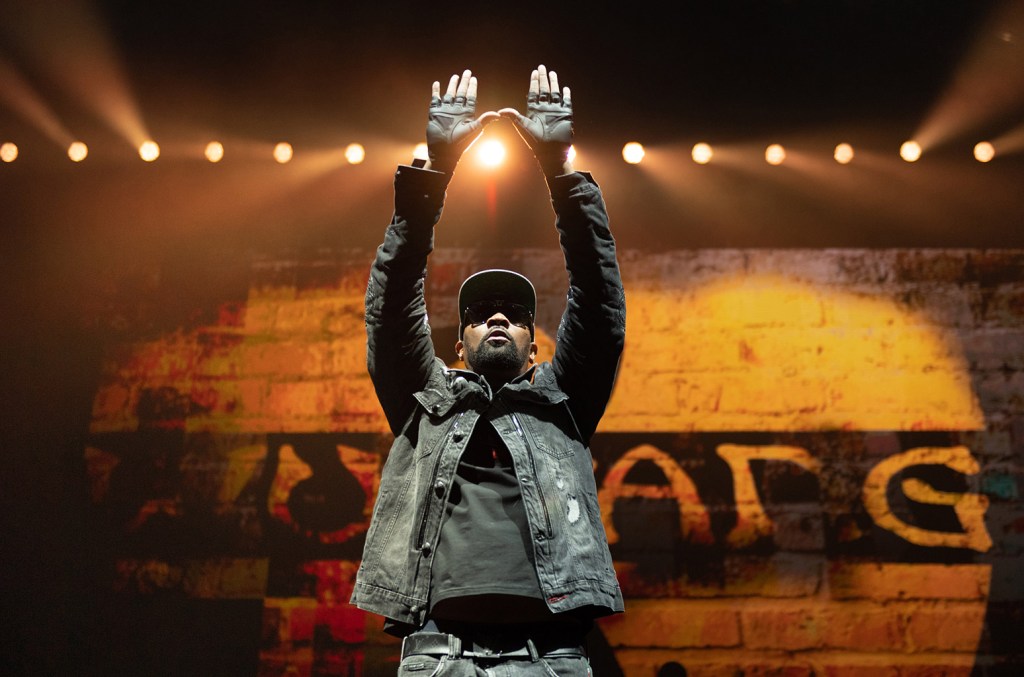
For Wu-Tang Clan superfans with money to burn, snagging a premium ticket for their upcoming tour won’t just buy killer seats, but gain them entry to an exclusive pre-party offering an immersive look at the kung-fu and iconography of the famed Staten Island hip-hop collective.
“We’re really being thoughtful from a pricing perspective,” Ben Duvdevani, co-founder of One More Time VIP, says of the Shaolin Temple Preshow Party ticket package, which offers entry to a time capsule-style exhibit showcasing rare Wu-Tang fan memorabilia and 3D video projections of classic films like The 36th Chamber of Shaolin and Five Deadly Venoms that inspired albums like Enter the Wu-Tang (36 Chambers) and Wu-Tang Forever.
“Packaging premium seats with these programs is enticing for the fan and helps push inventory. It helps push the bots out of purchasing premium inventory” and, he adds, “helps conversion for VIP.”
Trending on Billboard
The Shaolin Temple package is just one example of the lucrative VIP concert business in 2025, which is poised for a comeback thanks to a new generation of fans looking to invest in artist-centric experiences.
“There’s a ton of business out there because there are so many artists on the road right now, and so many artists at all levels trying to create something memorable for their fans,” adds Duvdevani, whose company is handing VIP packages for about 300 tours this year including Shaboozey, Sabrina Carpenter, Teddy Swims and HAIM.
It’s an impressive feat for an industry hit hard by COVID-19. The VIP business was born in the 1990s thanks in part to the work of New Yorker Shelley Lazar — the beloved “Ticketing Queen” who convinced iconic artists like the Rolling Stones, Paul McCartney and The Who to let her build out premium offerings for diehard fans she came to know on a first name basis — and it continued to grow in the new millennium as touring exploded. By the early 2000s, most artists were offering fans some type of VIP product, from meet and greets to destination concerts, facilitated and produced by a new generation of VIP companies with names like Fresh Beats and CID.
Beginning in 2017, many of the VIP companies started to consolidate. Several of them came under the NFL-backed firm OnLocation, which was purchased in March 2020 by Endeavor — just weeks before the concert business shut down for more than a year during COVID-19. During the pandemic, one popular U.K. VIP and hospitality company, Pollen, was forced to file for bankruptcy and later dismissed most of their staff.
Many VIP executives used the pandemic period to leave Endeavor and begin serving out their non-competes. By 2022, a new crop of companies founded by these execs started popping up, including One More Time, which won the contract to build the Shaolin Temple Preshow Party for Wu-Tang Clan’s upcoming Final Chapter North American arena tour. “It’s a bespoke preshow activation, where there’s going to be some surprises and a really special experience for fans,” Duvdevani tells Billboard of the exhibit that was created for the group’s 27-city tour. The Shaolin Temple pre-party is being packaged with front section floor tickets and priced at $740 a piece all-in.
VIP conversion has become increasingly common as more artists embrace platinum ticket pricing and higher prices for front row seating inventory as a response to secondary ticketing prices. Coupling these high-end tickets with VIP add-ons has become an important way to move aggressively priced inventory.
That need has led to one major change in how VIP packages and fan clubs are operated. Prior to the pandemic, many VIP companies operated ticketing systems that pulled tickets off the Ticketmaster or AXS platform, a practice that has largely ended.
“We want to put our best foot forward to make sure everyone’s winning, so we’re not taking anything off platform,” Duvdevani says. “Promoters are still getting the sale, and we’re also being mindful of that inventory. We don’t want to hold up a sell-out.”
Eddie Meehan got his start running VIP access company A Wonderful Union in the early 2000s before eventually selling to OnLocation and subsequently launching Please & Thank You. Meehan said his new company’s clients include Backstreet Boys, Alice Cooper, Melissa Etheridge and Peso Pluma.
“You have to be creative because many artists simply aren’t interested in doing meet and greets, it’s very taxing,” says Meehan, noting that he’s found success creating activations for artists like Aimee Mann, who offered VIP package holders a preshow soundcheck performance with songs not performed during the concert. Fans of another Please & Thank You client, *NSYNC, were invited to a restaurant for a private dumpling making party.
“We’ve had a lot of success bringing in brands to underwrite some of these events, which means more money in the pocket of the artist,” says Meehan, who has struck deals with Amazon Music and eBay Motors. “I tell brands they won’t get the same exposure to 600,000 fans they would get on a tour, but they do get access to 3,000 diehard, loyal fans who will evangelize your brand.”
Duvdevani added that VIP offerings shouldn’t be limited to established artists, pointing to newcomer Jessica Baio, a 23-year-old singer-songwriter who hired One More Time to run a VIP meet and greet program for her first headliner club tour.
“I feel like such an important part of going and performing live is also getting to meet people face to face,” Baio tells Billboard. “It’s something I wanted to offer to people and it’s just one of my favorite parts of the night, getting to physically hug people and meet them in person and allow them to share why my songs have touched them.”
While young artists like Baio have found success with a meet and greet program scaled to fit their tours, VIP industry luminary Dan Berkowitz, who is widely recognized with having helped create the VIP business through his firm CID, which he sold in 2016, says artists should only offer VIP experiences to fans if those experiences promote an “authentic connection.”
If the artist is committed to making the experience work, says Berkowitz, who launched his new company, 100x Hospitality, in 2022, there’s always potential for success.
“There is always going to be a strong demand for compelling experiences and people are always going to want to feel connected to the music that they love and to each other,” he says.

 State Champ Radio
State Champ Radio 